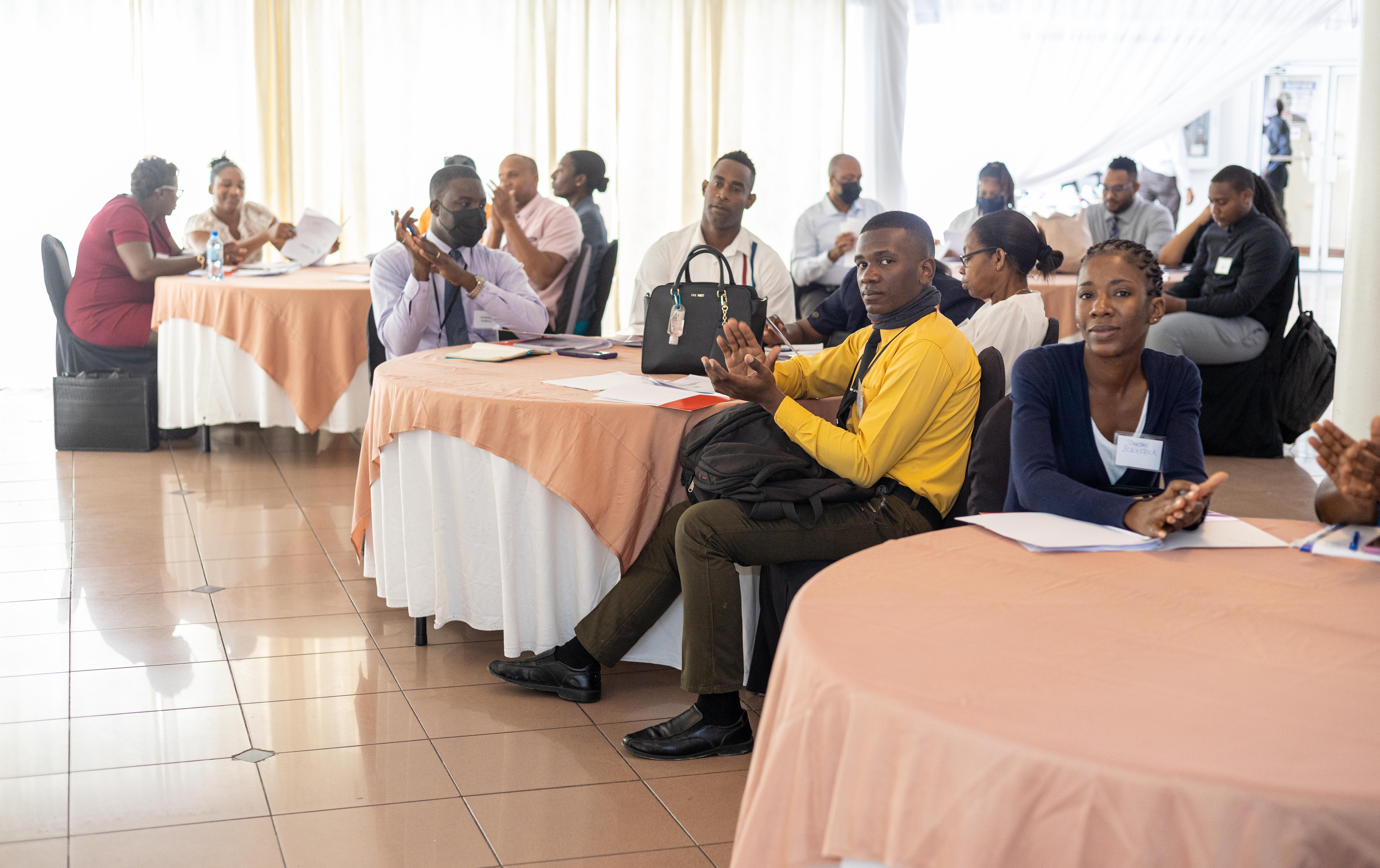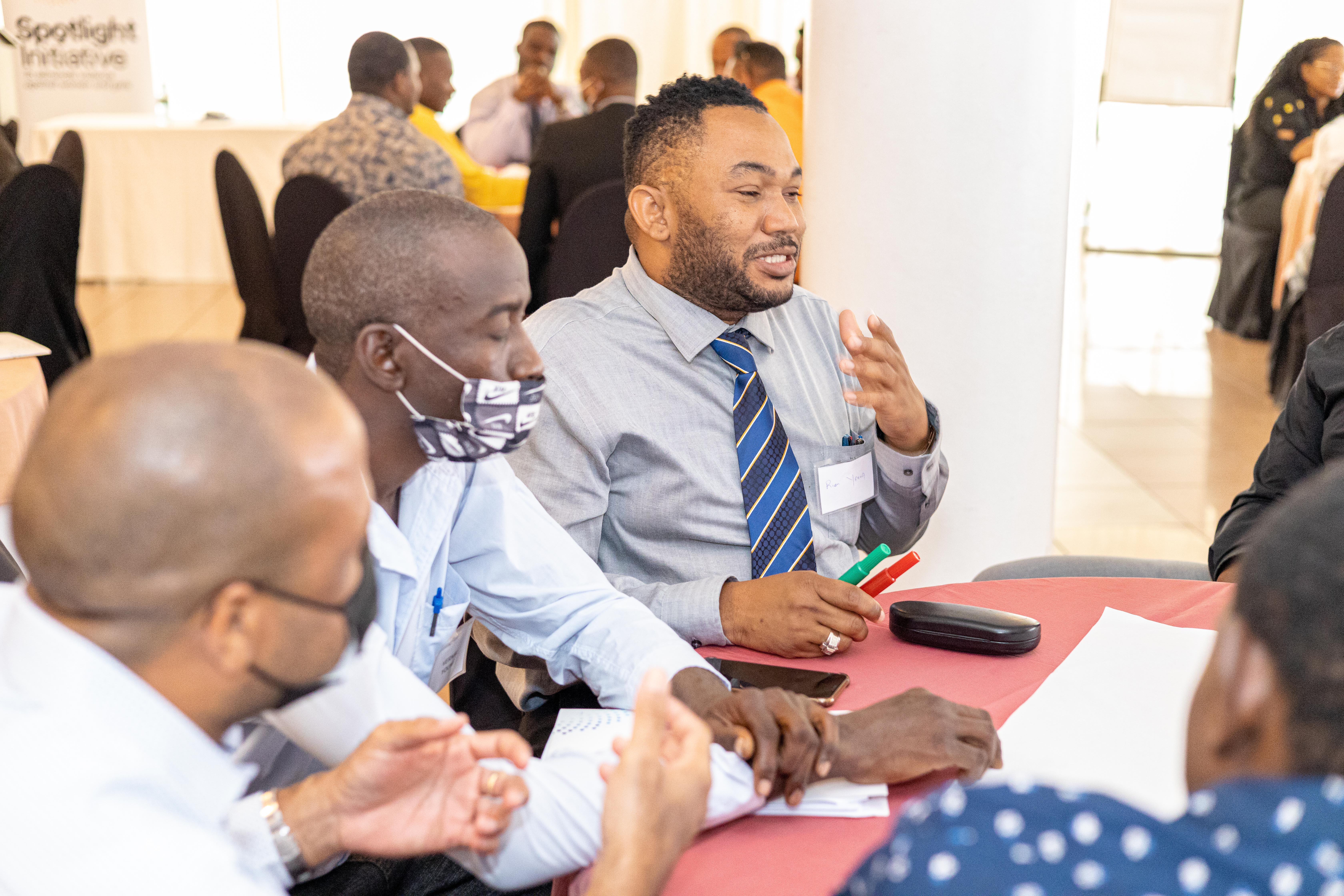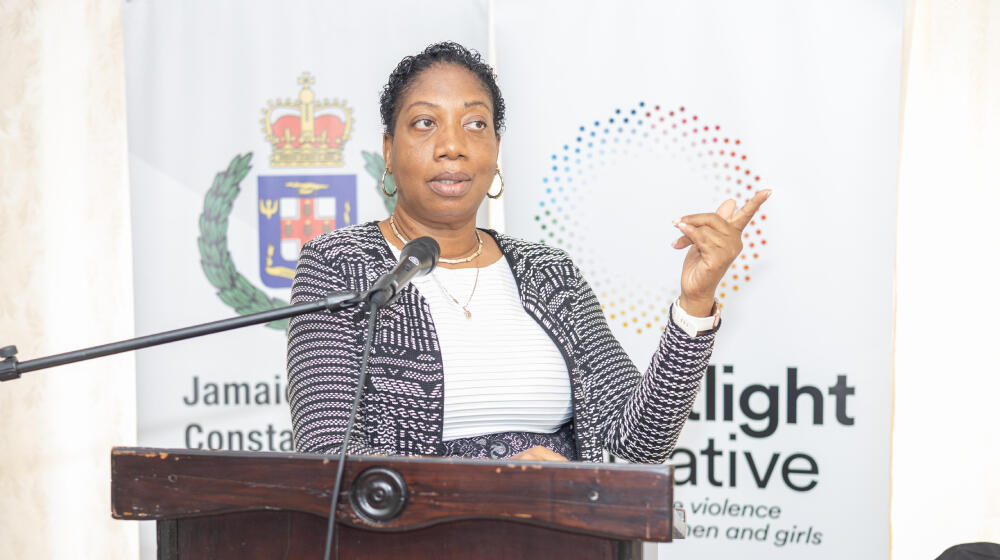“The experience of the victim is what we ought to be finding solutions to” when addressing gender-based violence (GBV) in Jamaica. These are the sentiments of Deputy Superintendent of the Jamaica Constabulary Force (JCF) Jacqueline Dillon. According to her “our own experience and the victims’ experience are never the same and so the survivor-centered approach gives us an opportunity as an organization and as individual first responders to ensure that everything we do has the best interest of the survivor or the victim at heart.”
Dillon is the key coordinator of training sessions that were facilitated by UNFPA in partnership with the Jamaica Constabulary Force (JCF) to teach police officers about the “survivor-centered approach” when providing services for survivors of GBV. The United Nations Population Fund (UNFPA), is one of the RUNOs working to respond to and reduce GBV worldwide in humanitarian, peace, and development settings. The agency leads Pillar 4 of the Spotlight Initiative to eliminate violence against women and girls - a United Nations initiative supported by the European Union and other partners.
“GBV is a cause for concern,” Dillon explained. “I believe many people do not understand what it is, and people still see it as their own private business. At a national level, even though we have been talking about it to some extent, I still believe there is not enough emphasis placed on it.” Dillon said the two-day sessions play an essential role in preparing the JCF to respond to cases of GBV.
GBV in Jamaica, as if it is not bad enough, is further worsened by COVID-19 as many women and girls have been forced into lockdown with perpetrators within their homes and neighborhoods. Last year, in Jamaica, 133 women were killed by their partners: that means one woman was killed every two to three days. While there are not yet figures available for 2022 there have been many notable cases already including social media influencers Donna-Lee Donaldson and Aneka “Slickiana” Townsend who were killed in July and October respectively.
“The Spotlight Initiative came on board at the right time,” Dillon said. She shared that the JCF was grappling with how to get police officers and communities to respond to these situations and have meaningful conversations about improving these efforts.

From March to December 2022, approximately 500 police constables have been trained. In November and December, the focus was on training the chaplains and peer counselors of the different districts, so that they will be able to properly address cases of domestic violence that involve members of the police, both as survivors and as perpetrators.

She remains optimistic that through sensitization, education, and continuous engagement of communities, Jamaica will have a positive turnaround in GBV cases.
“So far, the reception of our members has been good. For many, they did not understand because the term gender-based violence is relatively new to Jamaica. We’ve always talked about domestic and sexual violence so now is an opportunity for everybody to understand the broader concept of gender-based violence and what it is really about.”
Reflecting on the lessons learned during the sessions, Officer Stacy Hewitt is encouraged to play her part in eliminating violence against women and girls. “I was amazed by the real-life stories the facilitator presented. I have learned a lot over the two days and am in a better position to treat situations of domestic violence.”
Annique Hutchinson, another Officer who participated in the training sessions said: “I have learned a lot, in that I should be an active listener and encourage the survivor to talk until they are finished. I also learned to show interest in the person's conversation and empathize,” She said she “liked the fact they also explain the confidentiality aspect as well, so police are reminded that they should not share the survivor’s story.”


